By William Lubbeck and David Hurt
BACKSTORY: Wilhelm Lubbeck served as an enlisted man in the 58th Infantry Division on the Eastern Front during Germany’s 1941 invasion of the Soviet Union before being promoted to lieutenant. Here he recounts his experiences near the end of the war, when death or capture seemed inevitable.
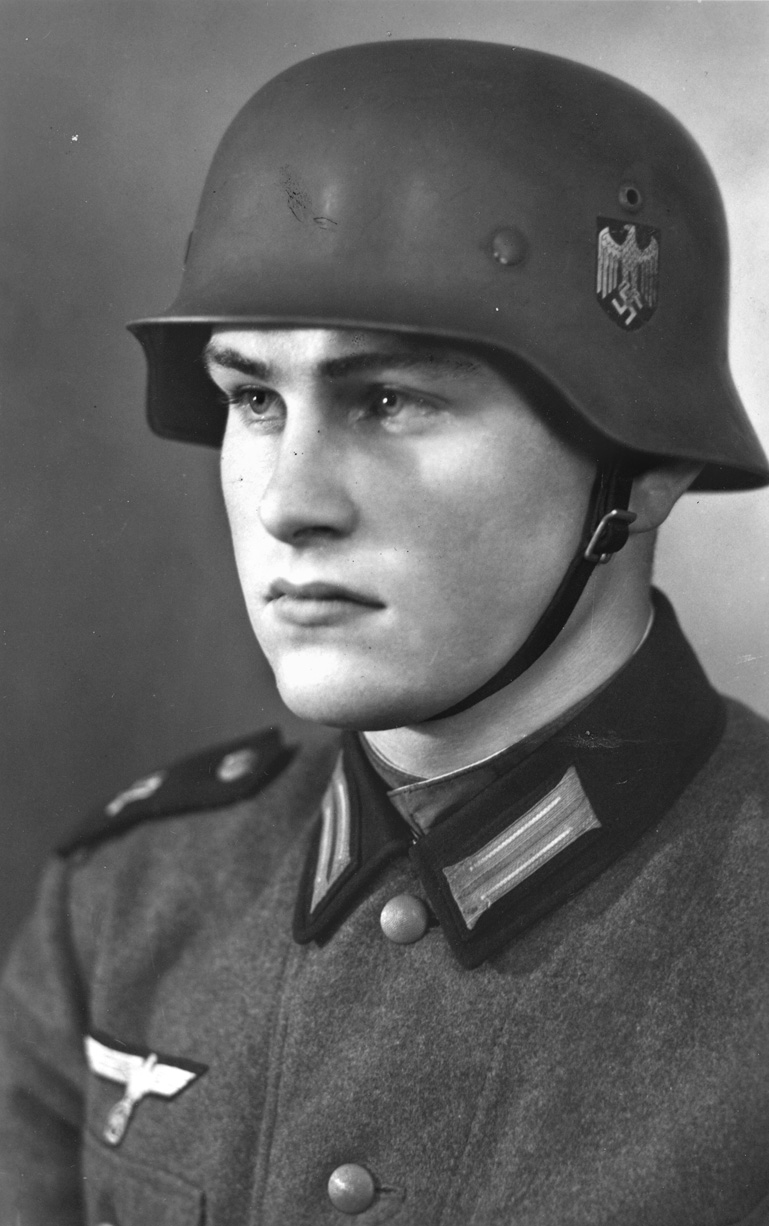
LAST ORDERS: APRIL 16–18, 1945
It was the end.
It was the end for my company.
It was the end for the 58th Infantry Division.
It was perhaps the end for Germany and for me.
In the four years since the invasion of Russia, April 16, 1945, was for me the worst day of the war. In the past hours, the heavy weapons company under my command had simply ceased to exist.
The disaster at the key road junction of Fischhausen was not a battle, but rather the catastrophic climax to the unrelenting Soviet barrage that had pursued our retreat westward during the previous weeks. Finally, trapped in a congested mass with other German units trying to move down the single main road through this East Prussian town, there was no longer any way to move forward.
Concentrating on this chokepoint, the artillery of four Soviet armies combined with several hundred aircraft to let loose a devastating assault. Everyone who failed to escape into one of the side streets was annihilated in a cataclysm of Russian rockets, shells, and bombs. A strafing run by a Soviet fighter plane on the western outskirts of Fischhausen left my face perforated with small bullet fragments and my eyes almost blinded by dirt and blood, but I realized that I had been fortunate simply to survive the onslaught.
Of the roughly 100 remaining troops from my company who had entered Fischhausen, it was clear that most had been killed in the attack. The death of so many of my men was emotionally wrenching, even if the loss of soldiers had become tragically commonplace during the course of the war.
What was most shocking to me was the ongoing collapse of military order that had begun even before we reached Fischhausen. Until this point, even as the military circumstances had grown more calamitous, the Wehrmacht had successfully maintained its discipline and unit cohesion. Now, everything was in utter disarray.
In our catastrophic condition, it seemed impossible that only 31/2 years earlier these same Russians had appeared to be on the verge of collapse as we stood at the gates of Leningrad. Yet in the years that followed I had seen the tide of war steadily turn as the Soviets recovered and joined with the Western Allies to force Germany onto the strategic defensive.
I knew what war meant. Relentless heat and dust in summer, bone-chilling cold in winter. Bottomless mud in fall and spring. Insatiable mosquitoes and incessant lice. Sleep deprivation and physical exhaustion. Bullets whistling through the air. Shells and bombs shaking the earth. Stench from rotting corpses. Constant fear of capture or death. The agony of losing comrades. Numbing brutality. Painful separation from my loved ones.
Even without being shelled or shot at, life at the front was unpleasant. Personal hygiene remained difficult and very low by today’s military standards. Occasionally we would rig a tub or shower or have access to a lake or river in which to bathe. More often, we would just wash with a little water and a bar of soap once a week or so, if we were not in combat. Lacking a toothbrush, I would squirt toothpaste on my finger to clean my teeth perhaps once or twice a week. There was generally only an opportunity to shave with my straight razor every couple of weeks.
With only two uniforms, we laundered our clothes whenever our situation at the front made it possible. Wearing the same clothes and underwear for two or three weeks without changing, soldiers were almost always covered by itchy bites from the ubiquitous body lice, even in the cold of winter. You could feel them and see them crawling around on you. We would strip off our shirts to kill them but could never rid ourselves of all of them. However, in contrast to the trenches and bunkers during the First World War, we experienced few problems with rats.
In 1941, just after my 21st birthday on June 17, orders came down to us that the invasion of Russia was at hand. On Sunday, June 22, 1941, the predawn silence was shattered by the roar of guns, as three million German troops commenced Operation Barbarossa, the invasion of Russia along an 1,800-mile front from the Baltic Sea to the Black Sea.
Advancing about 15 miles a day, we reached Siauliai, about 60 miles northeast of Pajuralis, by June 28. Though the panzer units were far ahead, the 58th Division’s rapid progress soon placed it in the lead among the infantry divisions of Army Group North. Despite occasional traffic jams, everything was moving swiftly east, boosting our confidence. In the midst of our success, there was growing optimism that we could defeat the Soviet Union by the coming winter or the following spring.
I wanted to be in the middle of the action, even if this placed my life at risk. Following the promotion of the previous forward observer (F.O.), when the company commander offered me the opportunity to serve up front directing the company’s heavy guns I enthusiastically seized the opportunity. In my role as F.O., I would act as the eyes for our company’s howitzers located about half a mile to a mile behind the front. I had acquired invaluable knowledge of the guns by regularly watching and working with the previous F.O.
Combat might be described as controlled chaos, but you have to maintain a sense of calm so you can focus on your mission. The F.O. position was well suited to my character since I found I had a knack for staying calm under enemy attack as well as an insatiable curiosity to know what was happening at the front.
Our eastward advance across Estonia went well as the enemy retreated before us. Following a two-week pause to regroup, on August 8 the German offensive was resumed. In an effort to reach Narva, on the Russian border, and shut the corridor to the Baltic region, our division’s 154th Regiment had pushed about 10 miles north of Niso to the junction of the Plyussa and Pysta Rivers. At this point, roughly four miles south of the Estonian capital, a destroyed bridge across the Plyussa on the main road to Narva halted our advance.
Our new assault commenced early on the hot, sunny morning of August 14 with German artillery pounding the Soviet positions across the river. Our regiment began crossing the river on rubber rafts about 50 yards to the right of the ruined bridge. Lacking specific orders in my role as F.O., I decided to tag along with a group of infantry troops heading up to the Plyussa River to get into the action. Just as we reached the river, the air around us suddenly filled with the shriek of incoming artillery fire. Reacting instantly, I darted to the left of the blown bridge, seeking cover in one of the many foxholes dug into the riverbank.
The area was soon inundated with a storm of shells. With some landing as close as a few feet away from my position, it was impossible even to stick my head above ground. When the shelling finally slowed about five hours after it had started, I decided to cross the Plyussa River to seek out my company and obtain new orders. Squeezing onto an infantry squad’s raft, I headed for the opposite shore, perhaps 30 yards away.
Once across, perhaps 150 yards from the river, an enemy bunker built of wooden logs appeared just ahead of me on the edge of the road. The Soviet troops inside were blazing away in the direction of German troops to my rear. It was clear to me that our advance would be slowed until the bunker was eliminated. With the attention of the Russians focused on the road, there was a chance for me to destroy the fortification on my own, if I could get close enough to use one of the three or four grenades that I carried.
Moving out 20 yards from the road into the brush, I began working my way around to the side of the bunker. Just as I reached a position at a right angle to the structure and started crawling toward it on my belly, the gunner inside must have spied the waving of grass to his right.
As he swung the gun in my direction, I flattened my body into the ground. At the same instant, the machine gun began spraying a fire that passed only a little above my head and back. Even with my body pressed against the earth, I felt one of the bullets literally rip the fabric of my uniform. Expecting to be killed at any second, a wave of terror ran through me.
All of a sudden, the gunner shifted his weapon back to the road, perhaps believing me already dead. I lifted my head up; the bunker’s gun portal was only 10 or 15 yards away. A quick sprint might just give me time to toss a hand grenade through the gun portal. Yet, even with my adrenalin pumping, my brain told me that I would be cut down before I could obtain a position safely out of the line of fire. Lacking any other options, I began to slide slowly backward.
My stealthy retreat had carried me only a short distance from the bunker when two deafening back-to-back booms resounded. Looking up, I watched in amazement as the bunker’s logs rose briefly into the air before crashing back to earth in a pile of debris. It seemed almost miraculous. The mysterious source of my salvation was revealed when I saw one of our 75mm howitzers deployed in the middle of the road back near the river.
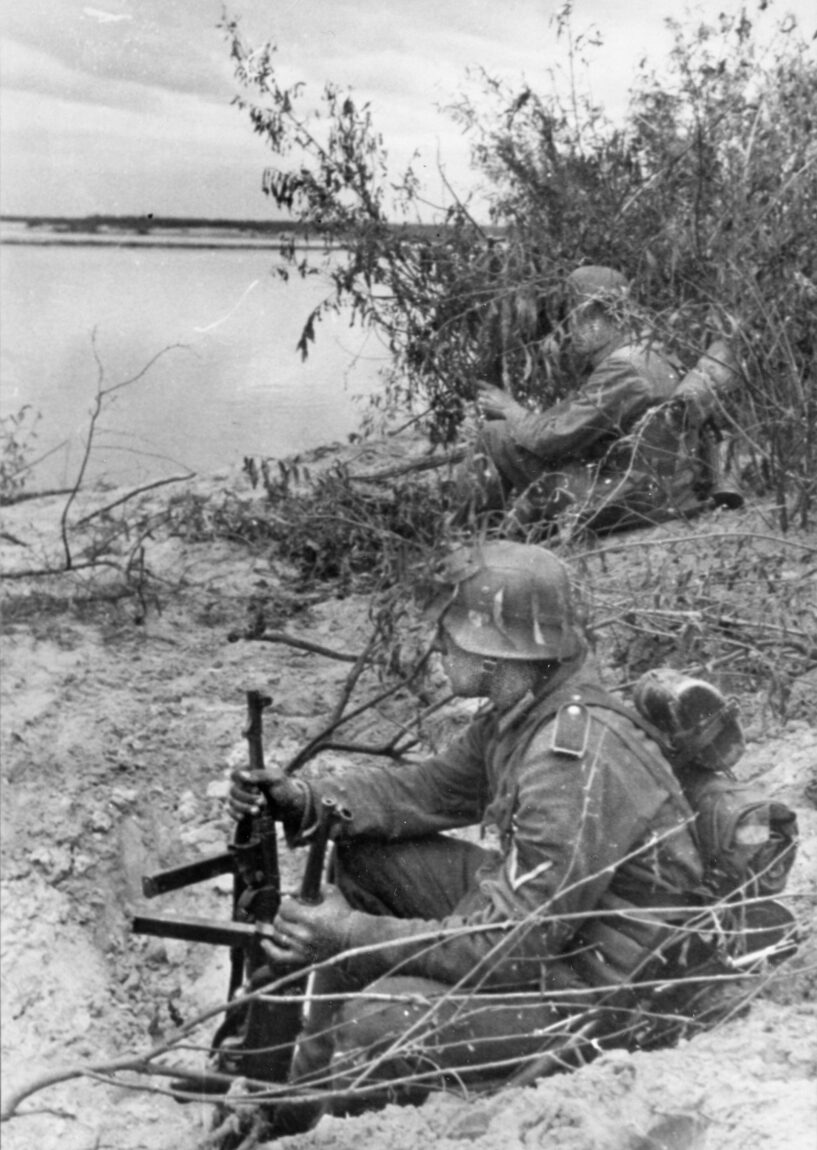
By the time the 58th Division reached Narva on August 18, the fighting had largely ended. Another month of often vicious combat with the Red Army lay ahead of us before our campaign would reach its goal—Leningrad.
After fighting off days and weeks of desperate Soviet counterattacks, late in the afternoon of a September day our company passed through Uritsk, which appeared to be just another typical Russian village of small wooden cottages. Only when we reached the shore of the Gulf of Finland did I realize our location. Just seven or eight miles away, central Leningrad’s high-rises and tall smokestacks stood silhouetted against the horizon.
After halting for a couple of days, we resumed our advance, fighting our way into the streets of Leningrad’s suburbs, past blocks of two- or three-story wooden buildings, meeting only intermittently stiff resistance from the Red Army.
After advancing a mile or two farther, we received orders to halt and pull back from the city into a more defensible position back at Uritsk. Because of our trust in our high command, we believed that they must have had a good tactical reason for such a decision. Many of us expected that this halt was a temporary measure to allow us to regroup before resuming our offensive. There was no indication that our effort to capture Leningrad by direct assault was at an end. A few days later, we learned with some frustration that Hitler had ordered a siege of the city rather than an attempt to take it by storm.
For the next three months we fought off and endured Russian counterattacks and artillery barrages. On October 1, 1941, I was promoted to lance corporal (Obergefeiter) and was permanently tasked to serve as our company’s forward observer.
In November 1941, just after we had settled into our new bunkers, we began to confront bitterly freezing temperatures of minus 40 degrees Fahrenheit. This was far colder than any conditions we had ever experienced in Germany. By my estimation, the cold weather that first winter in Russia was responsible for perhaps a third of the deaths among wounded casualties who might otherwise have survived. Then, too, there were the Russian snipers and the unceasing storm of artillery barrages.
[Editor’s Note: From November 1941 to March 1942, the opposing lines became more or less static, and the German troops holed up in a series of bunkers and trenches; the fighting was mostly exchanges of artillery shells.]
At one point, our intelligence learned that the Red Army was infiltrating dogs across the lines. These poor animals had dynamite strapped around their bodies and were trained to run under our vehicles. When they did so, the triggering antennas on their backs would bend and detonate the explosive.
Though there were probably few dogs actually armed this way, the army directed us to shoot all dogs as a precautionary measure. Carrying out these orders was especially painful to us, but we obeyed. Over time, war hardens your heart and leads you to do brutal things that you could never have imagined yourself doing in civilian life.
[Editor’s Note: In December 1941, the Red Army ceased retreating, turned around, and threw its considerable weight against the forces of Army Group Center, which had been attempting to capture Moscow. To assist their beleaguered comrades in Army Group Center, at the beginning of March 1942, Army Group North stripped its portion of the front and ordered the 58th Division, along with other units, to redeploy to the Volkhov River front, south of Leningrad, where Red Army units had broken through German lines.]
Pulled out of Uritsk in early March, our division’s infantry immediately journeyed directly south on trucks. Meanwhile, our company and other heavily equipped units traveled south by train on a circuitous, roughly 200-mile route. Neither group knew that its destination was the Volkhov River; we only knew that we had to halt a Russian breakthrough.
The German counterattack started on March 15. With temperatures still far below zero Fahrenheit, our infantry and other German forces advanced northward along the western side of the wide Volkhov River. Simultaneously, other German units were moving southward to link up with us and isolate the Soviet spearhead from its main lines to the east. By the time our two pincers met on March 19, we had trapped almost 180,000 Red Army troops in a Kessel (pocket).
Unlike the long lulls in the fighting at Uritsk, the air at the Volkhov was filled day and night with the incessant roar of artillery and the clatter of machine-gun fire.
When the spring thaw arrived in early April, it swiftly turned the whole Volkhov battlefield into a muddy bog. The warmer weather was initially welcomed, but we would soon discover that conducting combat operations in the steamy heat of a swamp was even worse.
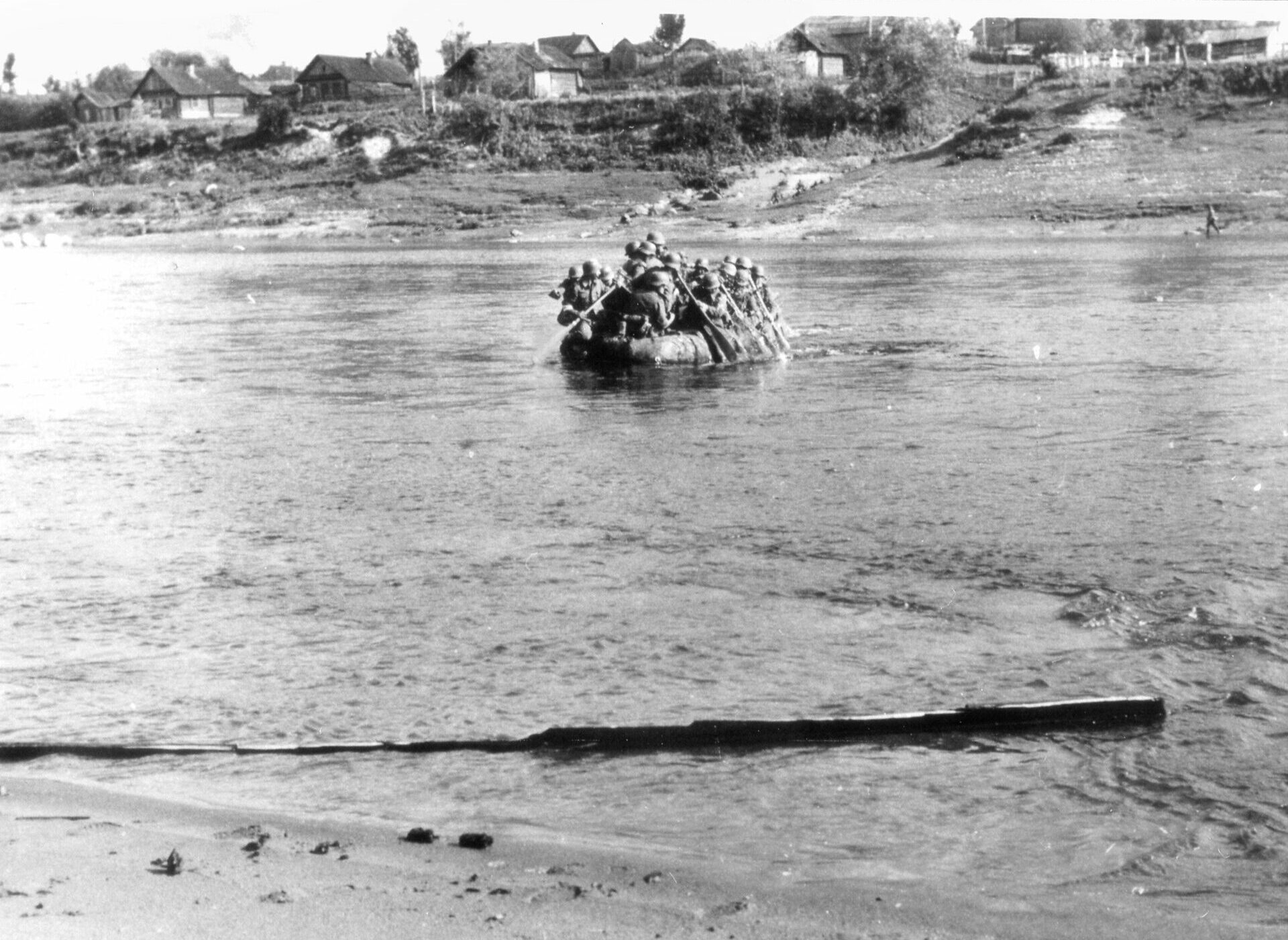
By the middle of May, the Red Army had decided to abandon its attempt to regain the offensive initiative at the Volkhov. Seizing the opportunity, we began an assault that pressed in around the entire perimeter of the pocket on May 22. By the end of the month, the 58th Division and other German forces had overcome determined Soviet resistance, resealing the pocket a second time. In desperation, the entrapped Soviet infantry conducted increasingly suicidal attacks against our positions. Prisoners reported to our intelligence that special Soviet units with machine guns were sometimes placed behind these hopeless attacks to make sure that soldiers obeyed orders to advance.
[The Battle of the Volkhov Front continued for several more weeks, waning at last on July 1; the 58th Division was then transferred some 75 miles northwest to the perimeter of the Oranienbaum Pocket, where Soviet forces were surrounded with their backs to the Gulf of Finland, about 15 miles west of the division’s old positions at Uritsk. With little fighting taking place, the 58th took the opportunity to rest. Medals and promotions were handed out. On August 1, Lance Corporal Lubbeck was promoted to sergeant and given a three-week leave.
After returning from leave, Lübbecke found that his unit had moved about 70 miles south of Leningrad at Novgorod on the northern shore of Lake Ilmen. The Russian winter was fast closing in, and the 58th Division, along with other units, was repositioned to hold open the vital and vulnerable land bridge to the Demyansk pocket, where a considerable number of German units were trapped.
After surviving the fighting and another winter, Sergeant Lübbecke received another leave from the front lines and he once again returned home, where he renewed a romance with Anneliese Berndt, a girl from Hamburg who was studying to be a nurse. Then it was back to the war—this time at Krasny Bor, where pitched battles with Soviet troops were often the rule.
One day, performing his job of forward observer during a suspicious lull in the fighting, he decided to climb a tree with a field telephone to get a better look at the terrain to his front. He soon spotted four Soviet T-34 tanks approaching across the flat ground directly toward his company’s position. Russian soldiers were riding on top of the tanks, which were followed by a large number of infantry on foot.]
While our company’s heavy guns were not designed to serve in an antitank role and lacked armor-piercing rounds, I knew from long experience that it was possible to accurately target the fire of the guns into an area about 10 yards square.
With a chance to halt the advance before it progressed any further toward our regiment’s position, I used the field telephone to direct one of our 150mm guns to fire a round against the closest T-34, about 500 yards to my front. Falling just to the left of the target, the first shell’s blast knocked the enemy troops from the tank but failed to damage the vehicle. After redirecting the howitzer to shift its fire to the right, the next round fell short of the tank. The next shell landed very close, missing the T-34 by only a few feet.
Receiving a further correction, the gun crew fired a fourth round. When the shell detonated against the turret, the tank instantly ground to a halt. Seconds later, a small plume of white smoke began to drift from the vehicle.
Shifting my attention to a second T-34 about 20 yards behind the destroyed one, I called in a fifth round. Smashing into its treads from the side, the shell’s explosion immobilized the vehicle, forcing its crew to jump out and run for cover. The third Soviet tank in the group immediately ceased its advance while the fourth one began to retreat.
As this assault ended, a larger group of around 15 tanks momentarily came into view 1,000 yards behind the scene of the attack before moving out of sight behind a hill. Unsure whether this larger armored force would renew the advance, I telephoned back to headquarters to make our new regimental commander, Colonel (Oberst) Hermann-Heinrich Behrend, aware of the situation.
“Where are you?” he demanded before I could even speak.
“I am in a tree right behind the front line,” I responded with some trepidation.
“What the hell are you doing up there?” he yelled back, obviously concerned that I would place myself in such a vulnerable position.
Informing him that we had stopped an armored attack probing behind our defenses,
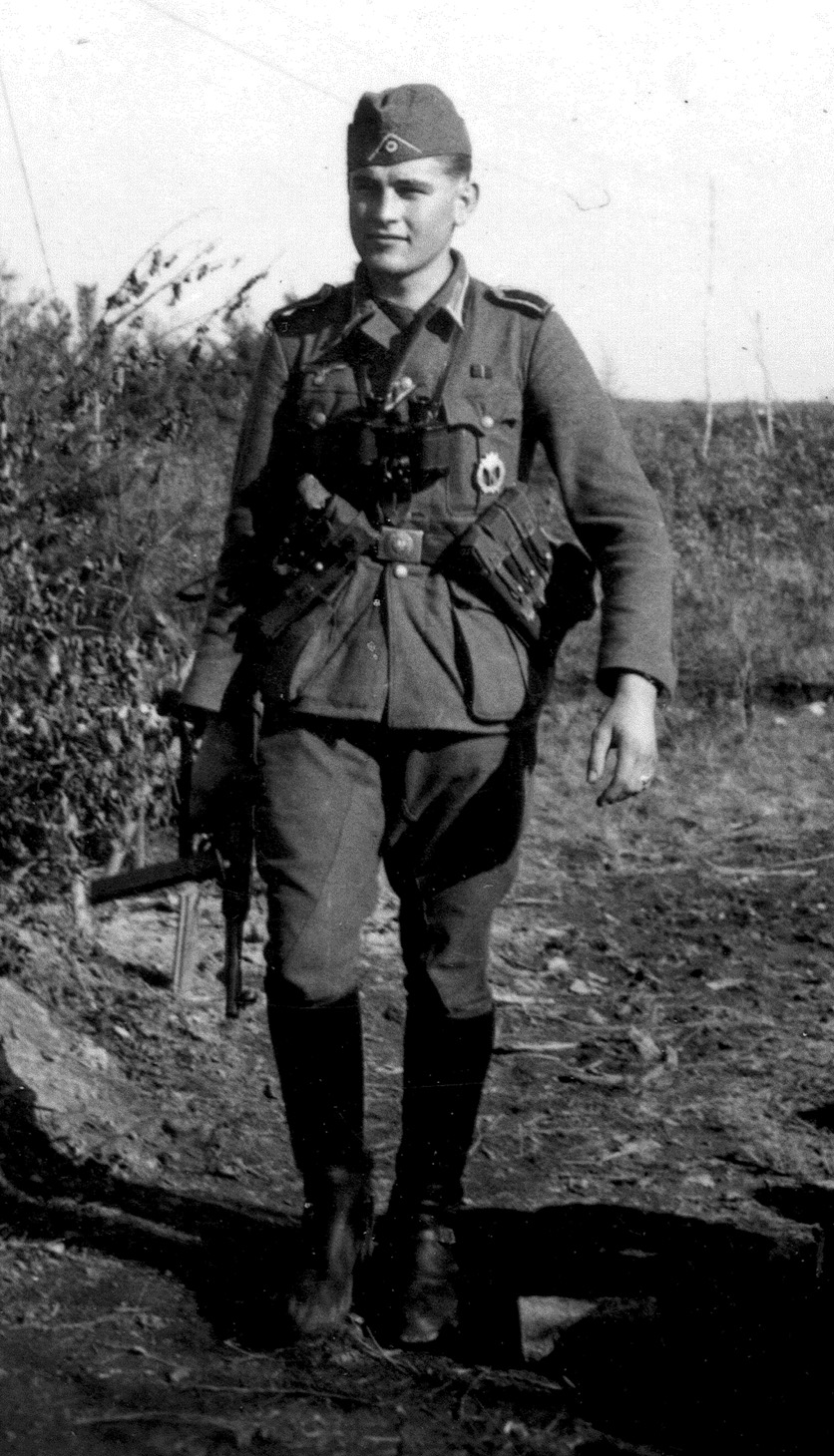
I warned that significant tank forces were massing behind it and might conduct another assault.
After requesting details on the number of tanks and their location, he indicated that he would pass along the intelligence to divisional headquarters and then he hung up.
Once their initial thrust was halted, the Soviets did not, however, attempt to renew their attack on our sector of the front.
Despite my thrill at knocking out the tanks, there was still a danger that the enemy would spot me the longer I remained in my exposed position. Yet, climbing down the tree in the daylight would greatly increase the risk of attracting the attention of a Russian sniper or machine-gun crew. In this dilemma, my only choice was to wait for the cover of darkness.
When dusk finally fell about an hour later, I made a rapid slide down the trunk and headed for safety in the rear. Reaching the gun crew, I passed along news of our small triumph. In a war filled with many combat engagements, hitting a moving target with indirect fire from guns in the rear was a rare and memorable accomplishment.
[The summer of 1943—filled with ceaseless barrages, tank and human wave attacks, and close calls—turned to fall; another agonizing winter was about to arrive soon. Before it did, however, Sergeant Lubbeck was awarded the Iron Cross First Class and then was appointed to become an officer candidate. After serving a trial period in charge of a squad, he left his comrades at the front and, in early December, reported to his officer-training course near Dresden, from which he graduated on March 15, 1944. He had also become engaged to Anneliese during that time.
Now it was back to the front once more, where he was assigned to command the heavy weapons company of the 154th Grenadier Regiment, 58th Division.]
When I returned to the Eastern Front from officer training in May 1944, the Wehrmacht had already retreated from most of the conquered Soviet territory. Army Group North, one of the three large German Army Groups in the East, had pulled back from Leningrad into Estonia. Weeks later, Army Group Center to the south of us was nearly destroyed by a gigantic Soviet attack. In the months that followed, we withdrew ever farther west, back into the territory of the German Reich.
Since late January 1945, I had led the steadily thinning ranks of my heavy weapons company in continuous combat against the inexorable torrent of Soviet forces pushing into East Prussia. Overwhelmed by the Red Army’s enormous advantage in men and equipment, it was clear that our situation was worsening by the day. Nonetheless, we battled on. What choice did we have? Faced with enemy troops to our front and the Baltic Sea to our rear, there was little hope of ever getting back to central Germany. Like cornered animals, we were simply fighting for our lives.
Promoted from first lieutenant (Oberleutnant) to captain (Hauptmann) in late March, I struggled to maintain discipline and morale among the troops under my command. The men in my company attempted to retain their usual confident spirit, but there was little secret what the future held for us. In these circumstances, falling to a Russian bullet on the battlefield seemed far better than the hellish conditions that faced a German POW in the Soviet Union.
As an officer, I felt a special dread of capture by the Red Army. If not killed in combat, I expected to be confronted with a choice between surrender and suicide. I planned to save one last bullet for myself, though it was uncertain whether I would be able to summon the courage to use it. Just two months short of my 25th birthday, I did not wish to die. So far, I had succeeded in escaping death and eluding this terrible dilemma.
With Fischhausen now reduced to smoking rubble and the Red Army only a couple of miles away, I wandered west from town along with other surviving German troops heading along the main road into the pinewoods.
At the limits of physical fatigue and psychological stress, my body moved forward almost robotically. My mind was numb, but I still felt a deep responsibility to my men. My purpose now was to locate any others who might have evaded the slaughter and taken refuge in one of the abandoned homes or many empty ammunition bunkers that filled the forest.
Sand and blood from the earlier attack still clouding my vision, I stumbled along beside the road, barely able to see where I was going or what was around me. Every 20 yards or so, the whistle of another incoming artillery shell forced me to throw myself against the ground. Getting back to my feet, I staggered forward again, constantly trying to blink my eyes clear in order to be able to identify the next position where I might seek cover.
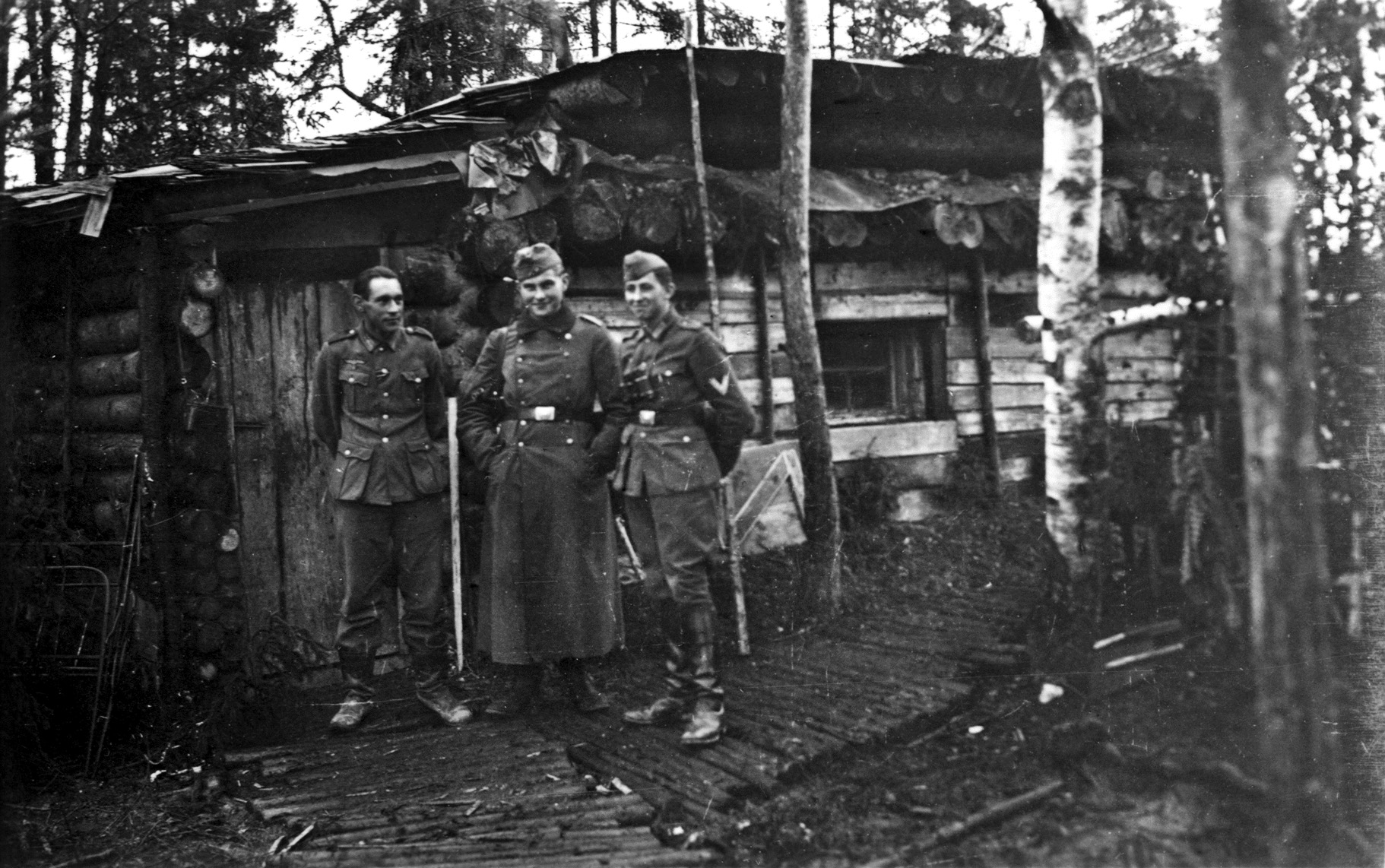
Perhaps a mile from Fischhausen, a group of 10 soldiers from my company appeared on the north side of the road, huddled just outside the entrance to one of the immense 60-by-100-foot earth-camouflaged bunkers. Among them was Senior Sergeant (Hauptfeldwebel) Jüchter, the head of the Tross (rear area); a couple of other sergeants (Feldwebels); two lance corporals (Obergefreiten); and several privates (Schützen).
“Where are the rest?” I asked in a somber voice. One of the men quietly replied, “We were attacked with bombs, rockets, and artillery fire. We lost our horses. We lost our equipment. We lost everything. It is all ruined. We are the only ones left.” Anyone else who may have survived the assault had disappeared in the ensuing confusion or had simply fled west.
There was little further conversation. The events of the preceding hours and weeks had left us traumatized and exhausted. With the end in sight, a bleak mood filled the bunker. The men only wanted basic information and direction. They looked to me to provide it, but I knew no more than they did. For the first time in the war, I was on my own with no orders where to go and no idea what to expect.
In urgent need of new orders, I told my men that I would seek to locate the commander of our 154th Regiment, Lt. Col. (Oberstleutnant) Ebeling, as soon as my vision cleared. By the time one of the men had finished wiping my eyes and removing bullet splinters from my face an hour later, I could see well enough to commence a search.
Ordering my men to remain at the bunker, I set out into the woods on the narrow neck of land farther west. Shells continued to rain down intermittently, but did little to hamper my reconnoitering of the area. Fifteen minutes later, I came upon a small camouflaged bunker about 25 yards south of the main road. When I stepped inside, I anticipated nothing but another vacant chamber.
To my astonishment, the bunker instead held half a dozen senior German generals, easily identifiable by the red stripes that ran down the side of their pants. Left momentarily speechless, I reflexively came to attention and saluted. Gathered around a table studying maps, they failed to show any surprise at my abrupt appearance and simply returned my salute.
Just as I was about to request new orders, the sudden drone of planes outside ended the awkward moment. As the generals scrambled under the table inside, I ducked back outside the entrance. From the south, a formation of about a dozen American-made B-25 bombers marked with Soviet red stars had already begun to dive toward our area. Still 3,000 feet up, a steady stream of small black objects began tumbling out from beneath the aircraft. There were only seconds to take cover before their bombs commenced plastering the ground where I stood.
Sprinting 20 feet from the bunker, I leapt into a long, six-foot-deep trench. If you seek shelter in a bunker that takes a hit and collapses, you are doomed. If you can take cover in a foxhole or a trench, however, a shell or bomb must land almost directly on your position to cause death or serious injury. You might suffer a concussion if a shell or bomb impacts nearby, but you will live.
Crouching down in the trench, I kept my head just below the surface to avoid the risk of being buried. With my hands cupped loosely over my ears, I opened my mouth. This allowed the air pressure inside my head to match that of the atmosphere. If an explosion occurred nearby, it would prevent my eardrums from blowing out. Combat teaches a soldier many tricks of survival, if you live long enough to learn the lessons.
At the same moment that I gained cover, the Russian bombs began detonating around my position in rapid succession, almost like a salvo of giant rockets. A succession of deafening blasts shook the earth and convulsed the air with indescribable violence. In that instant, I wondered whether my luck had finally run out and it might be the end for me. Strangely, perhaps, I experienced no sense of terror. Shelling, rocketing, and bombing had become such a routine part of my existence in the preceding years that I had almost grown accustomed to them.
As the bombs pulverized my surroundings, there was nothing for me to do but wait it out. My mind became a numb void as an animal instinct to survive took over. Even with my mouth opened to equalize the pressure, an explosion perhaps six feet away generated such concussive force that it nearly blew my eardrum out.
When the minute-long rain of bombs finally ceased, I knew that I was fortunate to have survived once again. With my ears ringing and my mind dazed, I unsteadily climbed out of the trench. Despite minor wounds, lack of sleep, and inadequate food during the preceding weeks of combat, I was still in fair shape physically. My psychological state was more battered, but I had to try to remain clear headed. As an officer, it was my duty to lead and take care of my men.
Though the generals’ bunker was still intact, I decided that they had greater concerns than providing orders to a company commander. Renewing my search for my regimental commander, I headed back in a northerly direction and recrossed the main road.
Perhaps 10 minutes later, I unexpectedly found Lt. Col. Ebeling attempting to establish a new defensive line a quarter of a mile away. Relieved, I could now finally find out what was going on and obtain new orders.
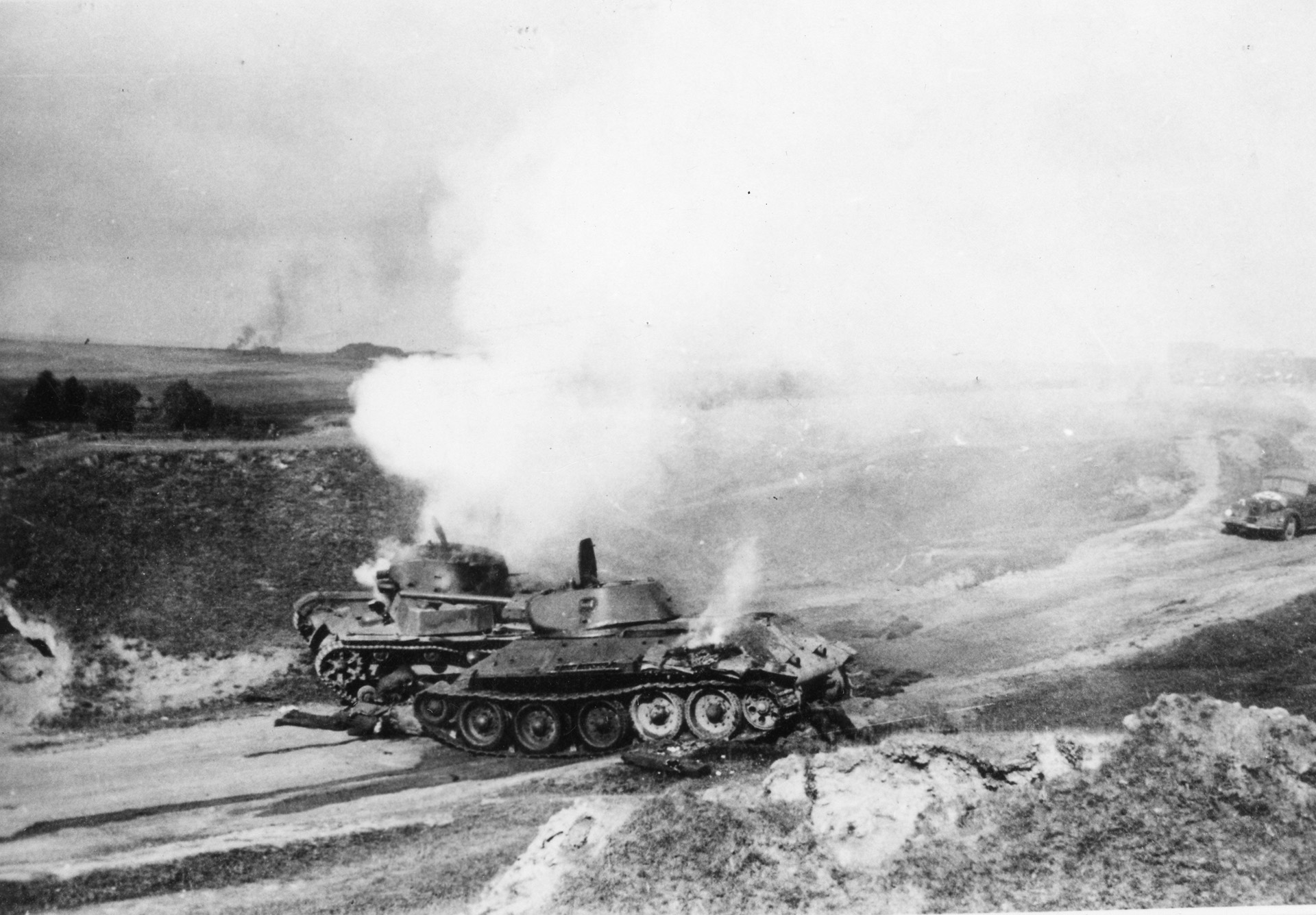
In a short conversation, he informed me that the high command was sending us back to Germany. All the surviving officers from our 58th Infantry Division were to return there to serve as the nucleus for a new division that the army planned to create in Hamburg. Meanwhile, the few remaining enlisted men in our division would be transferred to the still intact 32nd Infantry Division, which would remain behind as a rear guard to slow the Red Army’s advance.
After explaining the directive, Ebeling wrote out and signed the order in my small Soldbuch (military record book). Since the officers of our division would be traveling on their own to increase the likelihood that some would reach Germany, these written orders would prevent the SS (Schutzstaffeln) from punishing me as a deserter if I was stopped. A stroke of the pen had opened the door for me to escape death or capture by the Russians.
Grateful for the chance to escape the mounting chaos, it was nonetheless apparent that accomplishing such a journey would be almost impossible. Already, the Red Army had cut off the overland route back to Germany farther west beyond the Frische Isthmus, a long, narrow strip of sand that ran along the coast of the Baltic Sea. At the same time, ships attempting to reach Germany over the Baltic faced great risk of Soviet attack.
When I reached my remaining soldiers waiting at the bunker, I pulled aside Senior Sergeant Jüchter and explained that I had been directed to return to Germany with one soldier from my company. As my second in command, Jüchter was the natural choice to assist me in building a new unit, but I felt it was important to allow him to make his own decision rather than issue an order. “Will you go with me?” I inquired. With a simple “Jawohl,” he assented.
While our own prospects for reaching central Germany appeared doubtful, Jüchter and I would at least be given a chance to try. Aware that such information would only compound their sense of hopelessness, I did not divulge my own orders as I informed the other men of their imminent reassignment to the 32nd Division.
With almost all of my company lost, it was anguishing for me to leave these few men behind. In the two days that remained at the ammunition bunker, I sought to oversee the successful transfer of these surviving troops in my company to their new unit. Meanwhile, Jüchter attempted to use his connections with the rear echelon of our regiment to obtain medals that several of them were due.
Two days after the disaster at Fischhausen, I was able to present an Iron Cross First Class and several Iron Crosses Second Class, but it simply proved impossible for me to oversee their reassignment in the prevailing chaos. In the end, I had to leave my men to report to the 32nd Division on their own, like lost sheep in a storm.
Unless they were killed in the final days of the war, they almost certainly became Soviet prisoners of war. If they were strong and lucky, they perhaps endured the ensuing three or four years of captivity in Russia to return home to Germany. Even now, the thought of their suffering and the uncertainty of their fate deeply torments me.
Under sporadic fire from Soviet artillery, Jüchter and I left the bunker late in the afternoon of April 18 and set out down the main road toward the city of Pillau, located about six miles away. If we were able to reach the harbor there, we hoped to cross over the short span of water that separated Pillau from the northernmost tip of the Frische Isthmus.
Approaching the city as dusk fell perhaps three hours later, a gruesome scene greeted us. Along the road, a dozen or so bodies of German soldiers hung down from the branches of tall trees. Jüchter and I remained silent, but it was apparent that this was the grisly handiwork of the SS. Whether the men were deserters or simply soldiers who had been separated from their units or in shell shock would have made no difference to them.
Most German troops with whom I had fought perceived the Waffen SS (the military formations of the Schutzstaffeln) to be, in essence, part of the Wehrmacht, but disdained the regular SS, which was seen as a thuggish Nazi political militia. With the Nazi regime facing its end, it was not surprising that the SS would string up any of those they judged to be traitors as a warning to others. Witnessing their crude “justice,” I hated them.
As we made our way through Pillau in the lingering twilight, the intensity of the shelling grew heavier as the Russians concentrated their fire on the sector’s one remaining major target. Whenever there was a momentary lull, Jüchter and I left our cover and raced to the next ruined building, always remaining alert for the next incoming rounds so as to avoid being caught out in the open.
When we arrived at the inlet on the west side of town a few hours later, there was already a growing throng of hundreds of troops and civilian refugees gathered at the dock. Despite the chaos, one or two ferries continued to carry passengers and a few vehicles across the 200 yards of water that separated Pillau from the start of the Frische Isthmus. There was nothing for us to do but wait our turn under continuing intermittent artillery fire.
It was dark a half hour later when Jüchter and I squeezed onto a ferry with perhaps 100 soldiers, refugees, and a variety of trucks and other military equipment. As soon as the boat docked on the far shore 10 minutes later, we joined a couple of dozen other soldiers cramming onto one of the trucks just ferried across the channel.
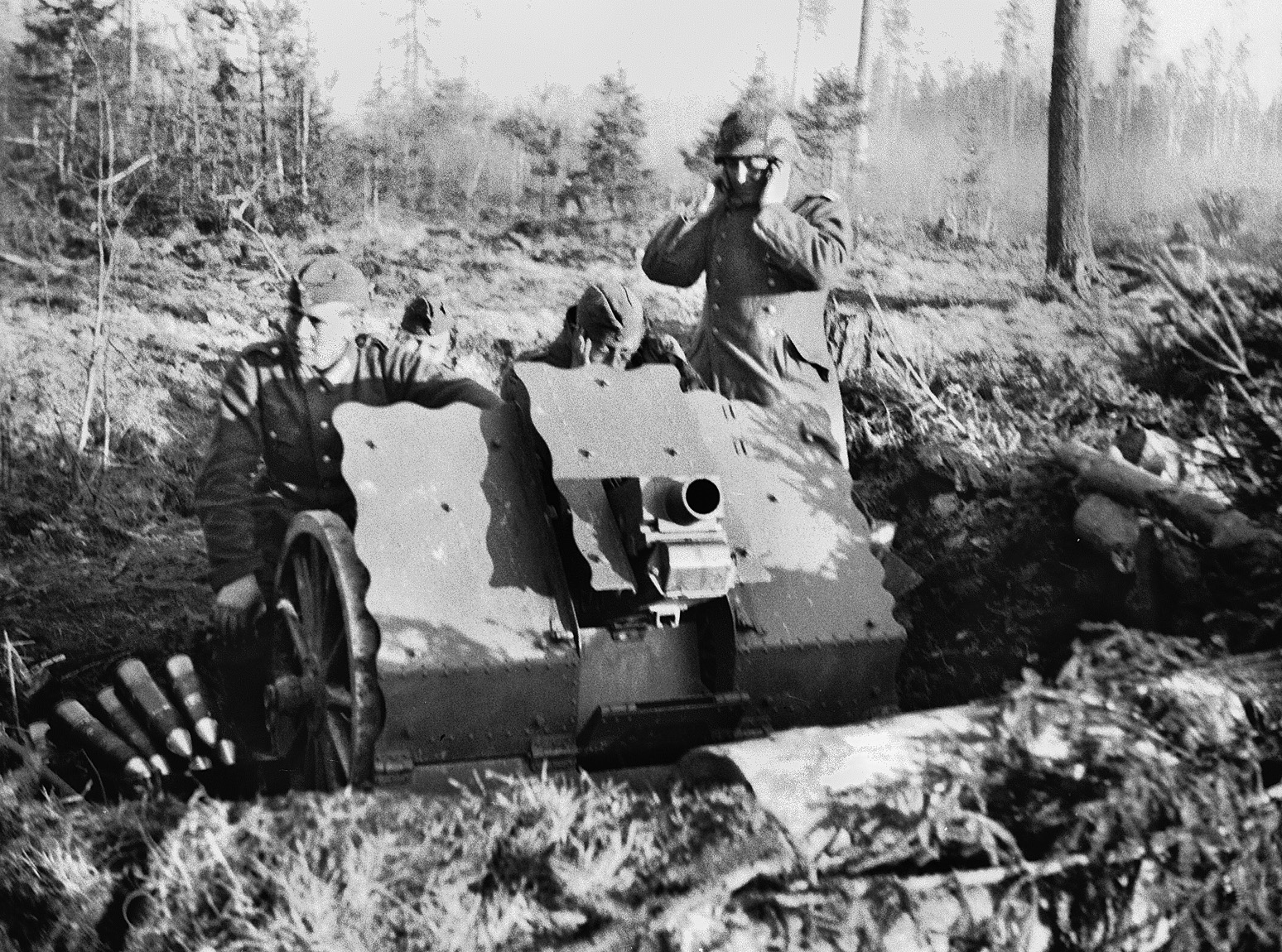
As shells still occasionally dropped around us, our truck joined the impromptu convoy departing westward down the Frische Isthmus. The column proceeded slowly through the darkness, driving without headlights in order to avoid attracting the attention of any Russian aircraft that might be lurking above.
A few hours into the trip, we passed a group of burning buildings. Since there was no artillery fire or bombing in the area, this seemed very odd to me. Turning to the soldier seated next to me on the truck, I asked what had been there. “Oh, they are probably burning the KZ,” he responded.
My unfamiliarity with the term led him to explain that a “KZ” was a Konzentration Lager (concentration camp) for enemies of the Nazi regime. As incredible as it may seem, it was only at this moment at the end of the war that I became aware of the existence and function of concentration camps.
The revelation left me bewildered, though I still did not connect such camps to a Nazi policy of genocide. My ignorance of the system of concentration camps during the war matched that of most other Germans. Actual photos of the camps were not seen by any public, German or Allied, until after the war.
The ability of Hitler’s regime to keep this massive atrocity a secret from the population demonstrates its effectiveness in controlling information that would have jeopardized its support. Like most Germans, I felt bitterly betrayed when I eventually learned that Nazi leaders had directed the execution of millions of Jews, Gypsies, and other prisoners in these camps. That was not the cause for which I had fought and for which so many of my comrades had sacrificed their lives.
Just before dawn, our ad hoc convoy reached Stutthof, an assembly point for the troops who had made the 35-mile journey from Pillau. We spent the rest of the day under cover before renewing our journey northwestward by sea. Boarding a ferry that night, Jüchter and I crossed the Gulf of Danzig to Hela, a port located on the end of a long peninsula about 20 miles from Stutthof.
Disembarking at Hela, we took refuge in a block of three-story brick apartment buildings which had been deserted by their owners. Exhausted after months of combat and our long trek, we fell into a deep slumber.
While we were unaware of it at the time, the disaster at Fischhausen had occurred on the same day that the Red Army had commenced its final assault on Berlin far to the west of us. This offensive made the whole Baltic coast a relative backwater in the larger war, though Hela’s geographical isolation probably also served to deter the Russians from trying to occupy it. In any case, they appeared content to keep hammering us with artillery fire from the area around Gdingen, a town and harbor about 10 miles away on the Soviet-occupied mainland.
Finally out of combat, I thought almost constantly of my fiancée, Anneliese, whom I had met six years earlier, a few months before being drafted into the military.
Though several months had passed since we had last corresponded, my love for her remained my lone source of hope in the otherwise dark and uncertain future that lay ahead. In my heart, I felt sure that we would be together for the rest of our lives, if I could somehow evade the Russians and reach Germany.
Throughout the days that followed, my unit did little more than rest and try to scrounge up something to eat. One afternoon, I caught sight of Lt. Col. Ebeling and a group of staff officers from the 154th Regiment off in the distance but did not speak to them. Though we were all seeking to find our way back to Germany under orders, it was clear that the Wehrmacht was in the process of disintegrating. Everyone was now basically on their own.
During this period we received word of two of the worst maritime disasters in history. In back-to-back tragedies in January and February of 1945, the German liners Wilhelm Gustloff and General von Steuben had been torpedoed and sunk by the Russians while evacuating thousands of civilian refugees and wounded personnel from East Prussia back to central Germany. Despite all we had endured at the front, this news further deepened the overpowering sense of grief and despair among us.
Even if it was possible to find space on one of the few vessels departing Hela, the threat of Soviet naval attack made the prospect of reaching Germany appear more remote than ever. At the same time, most of the officers on the Hela Peninsula were not even making a serious effort to leave, regardless of their orders to return to Germany. A lingering sense of honor and a bond of solidarity among us created a kind of inertia. In spite of the general breakdown in military order, none of us wished to give the appearance of deserting our comrades by departing before they did, even if it served no purpose for us to remain where we were.
About 21/2 weeks after our arrival on Hela, Jüchter was outside the apartment building one afternoon when a sudden Russian artillery barrage began hammering the area. Caught in the open, he was hit in the thigh by a piece of shrapnel. Notified by a medic of his injury, I requested that our regimental physician come to examine him.
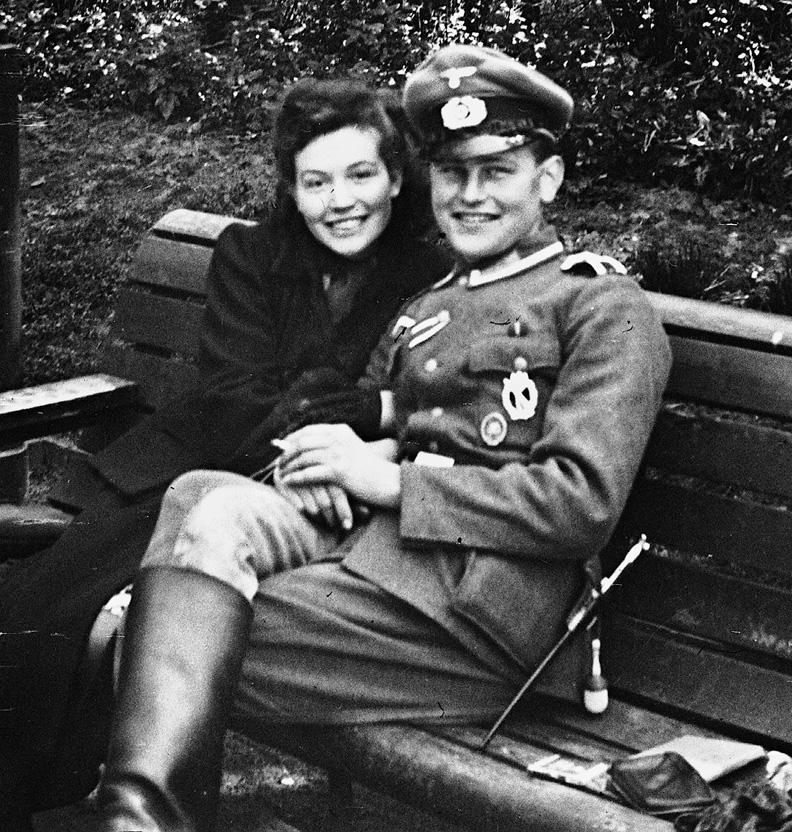
Observing the doctor as he bandaged Jüchter’s wound, I asked whether he should place a tourniquet around the sergeant’s leg as a precaution to ensure that he would not lose any more blood. The physician assured me that this measure was not necessary and that his injury was not life threatening.
Once the bandaging had been completed, the doctor directed me to take Jüchter to a field hospital that had been established in an underground concrete bunker. Together with the medics, I assisted in carrying Jüchter the 75 yards to the facility.
Inside, wounded men were lying like cordwood along the bunker’s walls. Locating the doctor on duty, I informed him that I had a badly wounded soldier who needed urgent medical attention. He responded, “Yes, but take a look. We have to go in order of priority. Lay him down there and we will take care of him.” Leaning down to Jüchter, I assured him, “I will be back tomorrow to see how you are doing.”
On my return to the hospital bunker the following morning, I was told that Jüchter had passed away during the night. Realizing that he probably died from shock and loss of blood, it was difficult not to feel angry and bitter at the regimental doctor’s decision not to apply a tourniquet that might have saved his life. Even after experiencing the loss of so many comrades, Jüchter’s death seemed an especially needless sacrifice to me.
Now alone and possessing nothing other than my uniform and a couple of pistols, I contemplated my situation. Nothing had changed in my orders, but I finally felt a renewed sense of motivation to find a way off Hela.
Early the following evening, I wandered the 500 yards from the apartment building to the harbor area to find out what was happening. Unexpectedly, I stumbled onto a chance situation that changed the course of my life.
Observing about 400 fully equipped troops standing around near the dock, it was obvious the unit was preparing to depart Hela. In an instant, I made up my mind to tag along with them wherever they were destined. Conversing with the soldiers, I recognized their Silesian accents and learned that their infantry regiment had orders to sail for Germany.
Oddly, no one ever questioned my presence nor requested my orders either in Hela or during my journey there from the front. This may have been due to the deference given an officer, though I still only wore the lower rank of first lieutenant despite my field promotion to captain in March. Alternatively, this failure to challenge me may have simply been another reflection of the mounting chaos behind the lines.
When the order to depart came just after dark, I filed onto the deck of one of the small barges with a couple of hundred of the soldiers. A half hour later, a mile or so outside the harbor, a giant shadow loomed up in front of us. A brand-new destroyer of the Kriegsmarine (German Navy) was readying to sail for Germany.
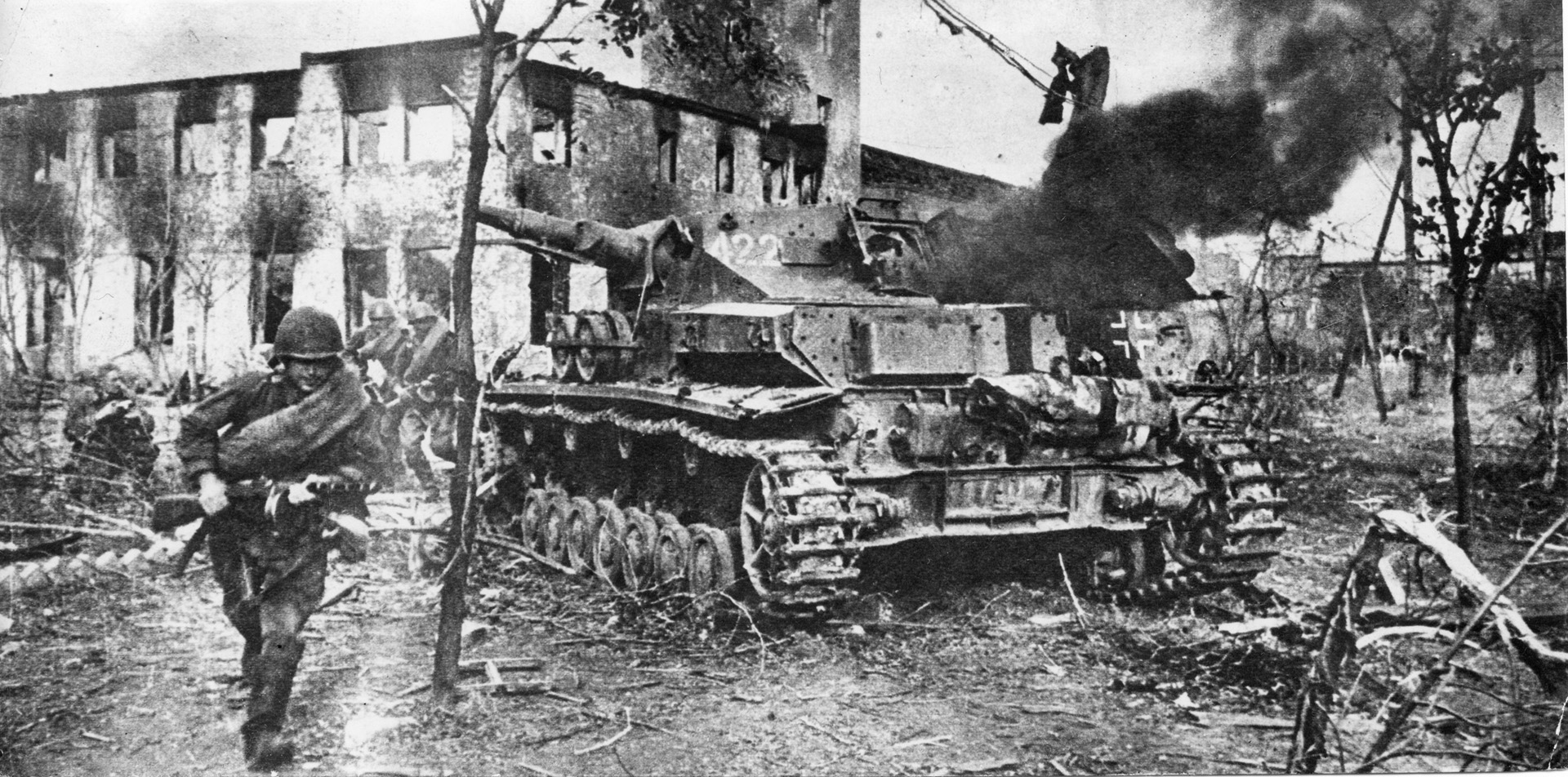
After climbing up a net hung down the side of the ship, we were warmly welcomed by the crew and directed where to go. While the enlisted personnel bedded down in the cool night air on the deck, I was escorted to one of the cabins below.
Despite the recent torpedoing of other German ships sailing west, I finally felt a flicker of optimism about my chances of survival as I lay in my bunk. What would happen now?
Early the following morning, a sailor came to my bunk and woke me. In a somber voice, he announced, “Der Krieg ist vorbei.” (“The war is finished.”)
The date was May 9, 1945.
Looking back, my lucky escape from Hela that night probably saved me from making a choice between going into captivity in Russia or taking my own life. Yet at that moment when I learned of the surrender, my mood was neither one of joy nor sadness. Instead, I felt only numb disorientation at the loss of all that I had known, and deep uncertainty about what lay ahead for me and for Germany.
EPILOGUE: Wilhelm Lubbeck was taken prisoner by the British and survived the war. He returned to a destroyed Germany, married Anneliese in 1946, emigrated to Canada in 1951, Anglicized his name, and eventually reached the United States, settling in the Cleveland, Ohio, area in 1956, where he found work as an electrical engineer. He and Anneliese had three children: Harold, Marion, and Ralph.
He retired from Union Carbide in 1983, moved to North Carolina, and started his own firm, William Lubbeck Company, working as a consultant to the steel and foundry industry. Sadly, Anneliese died of cancer in 1988.
His memoirs are captured in At Leningrad’s Gates: The Story of a Soldier with Army Group North, published by Casemate Publishers, 2006.
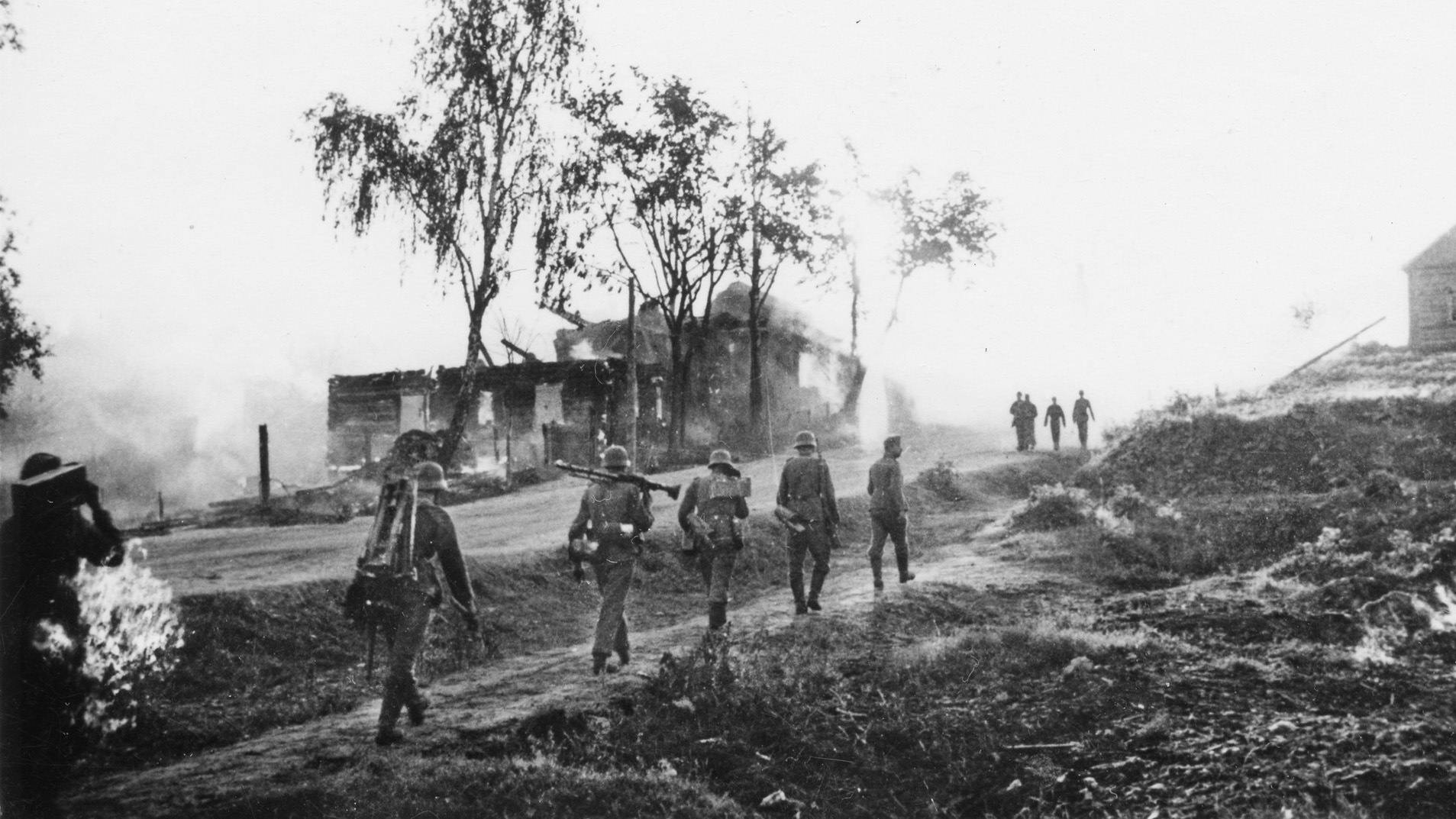
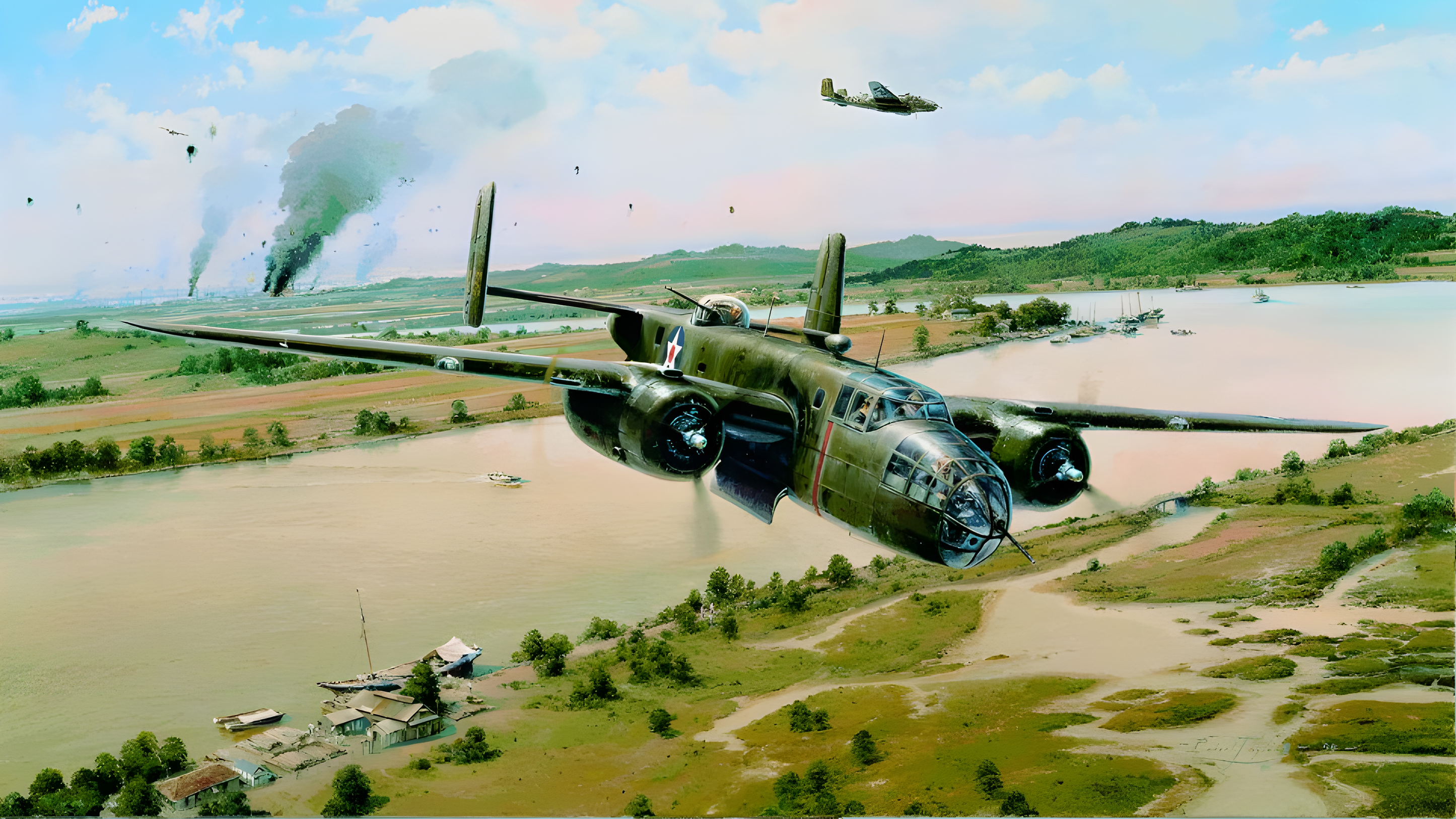
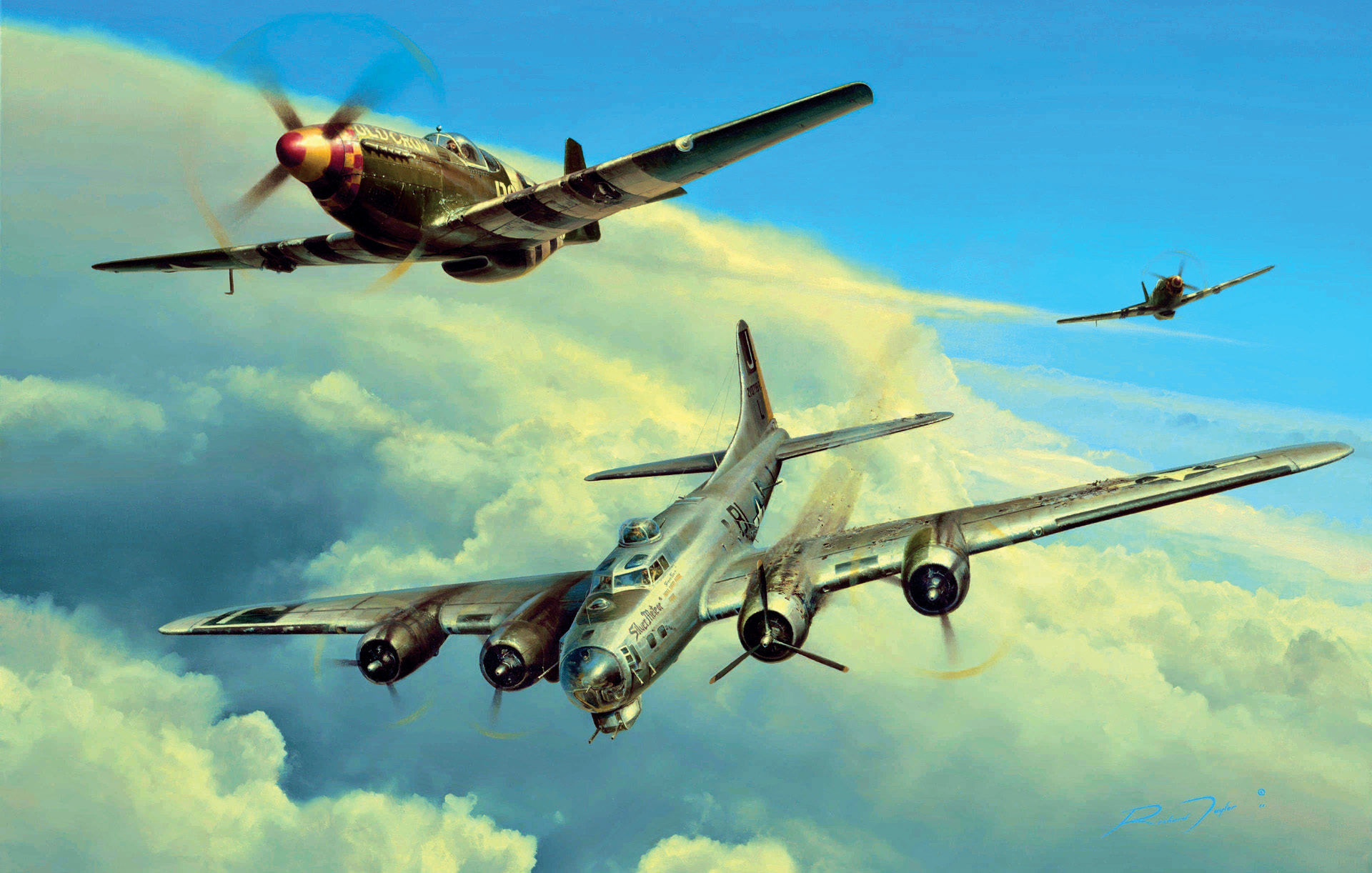
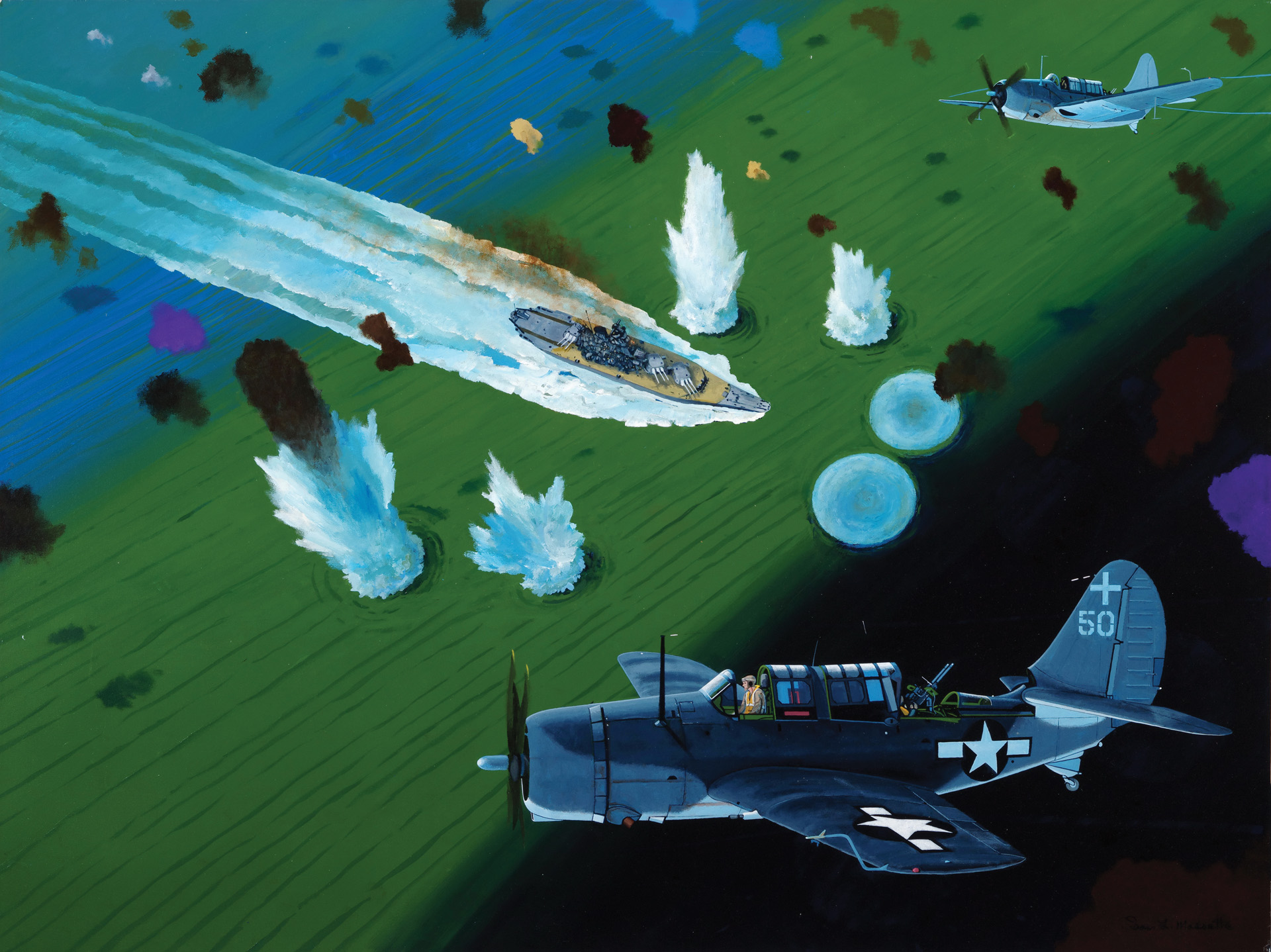
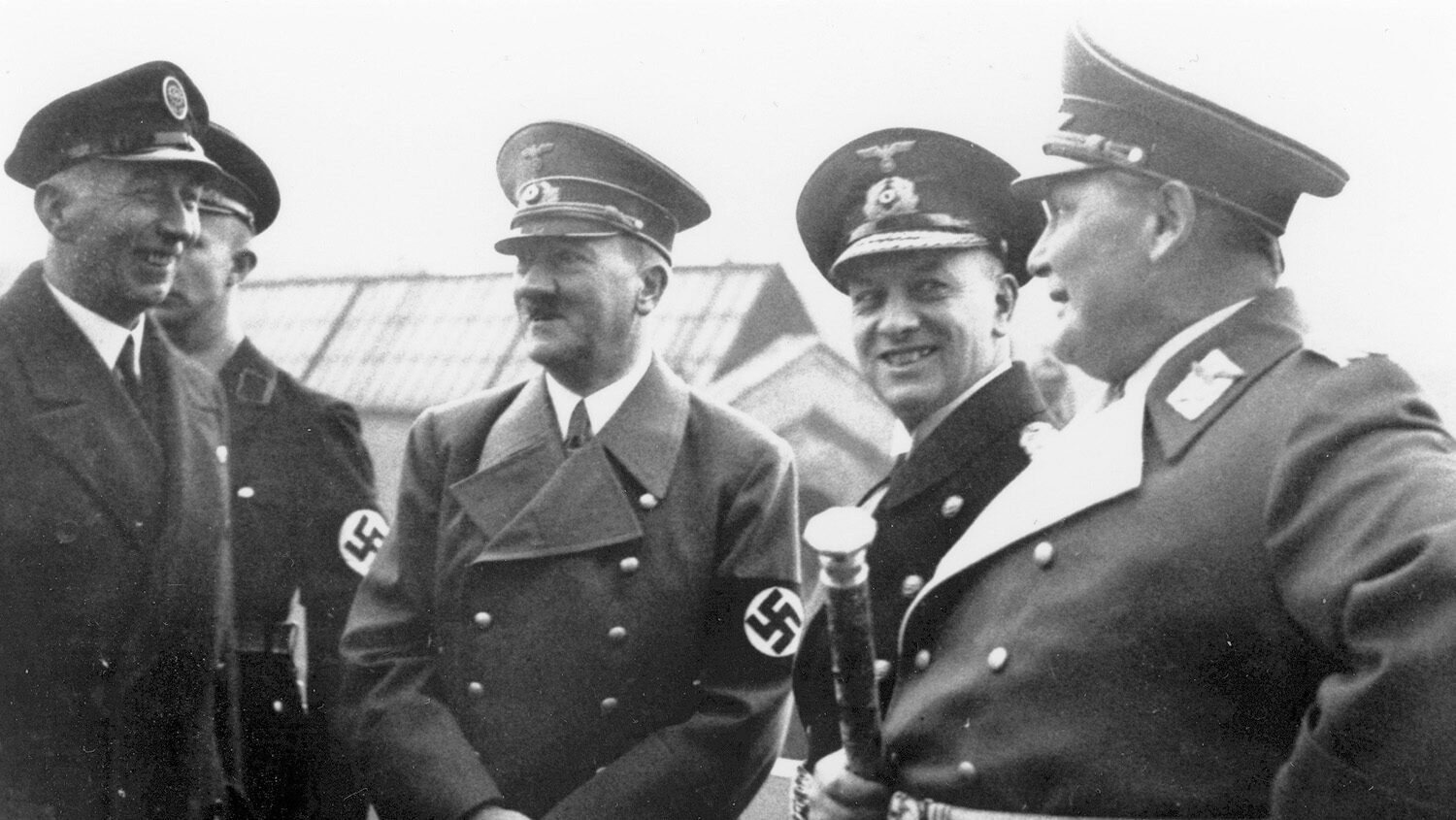
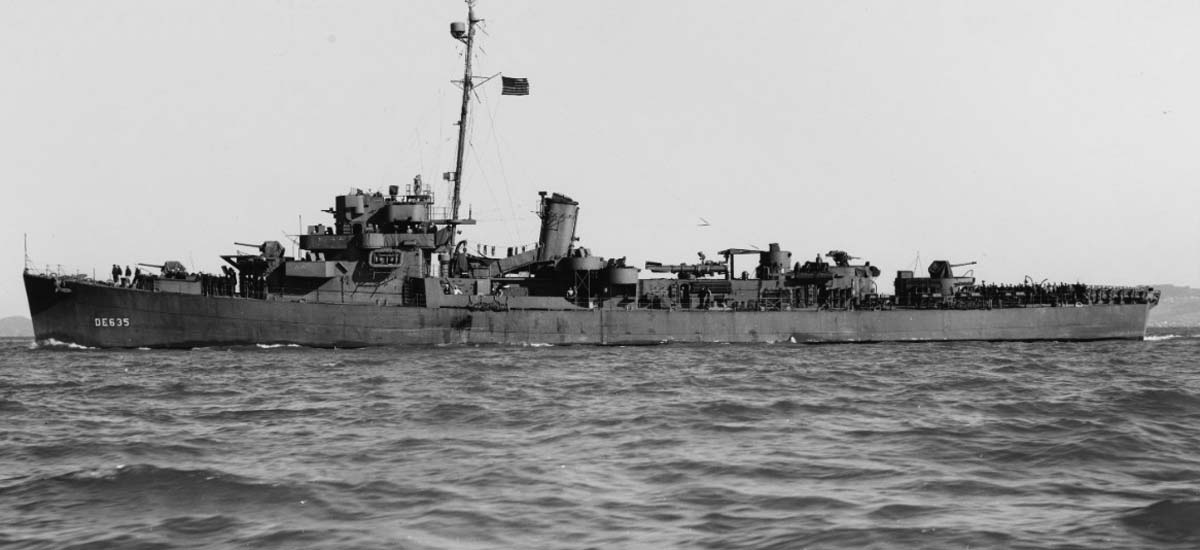
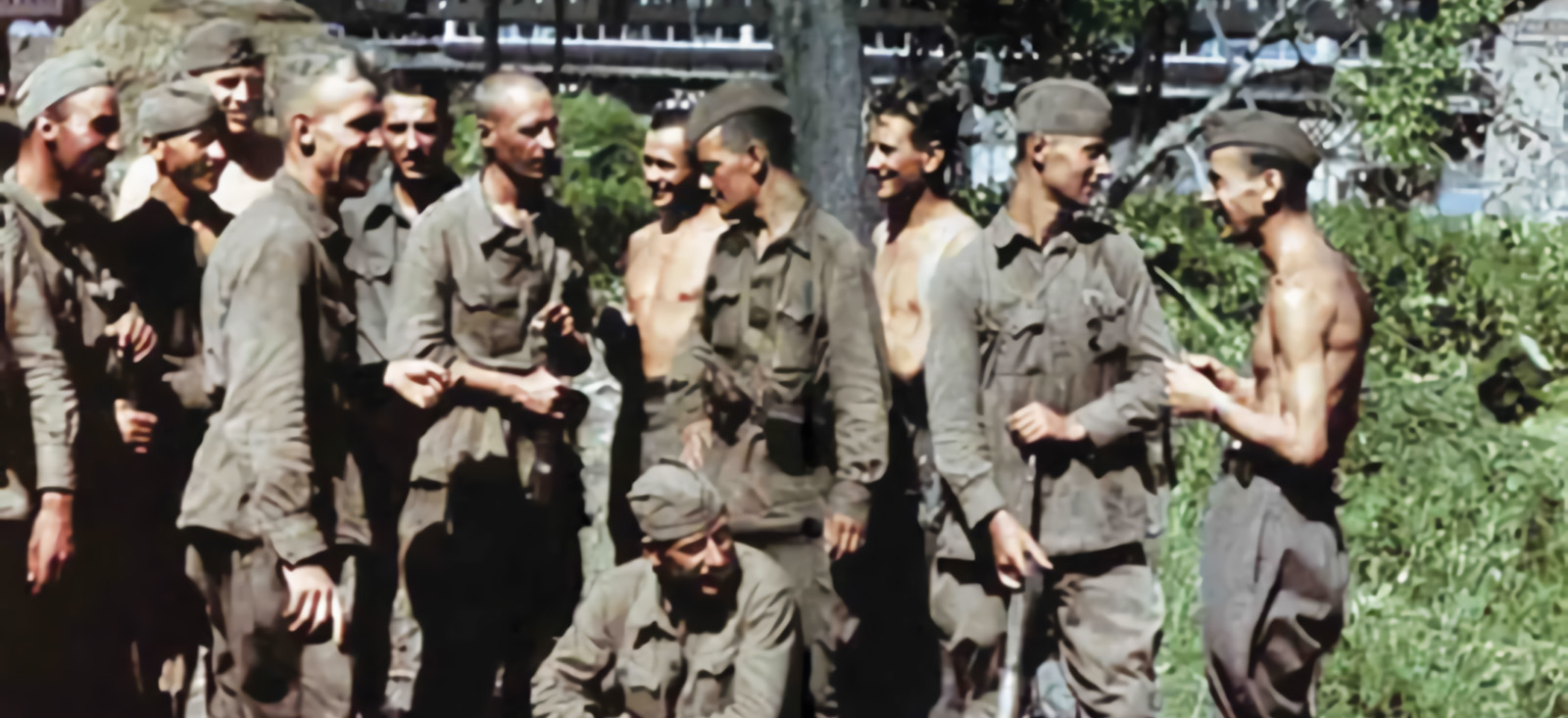
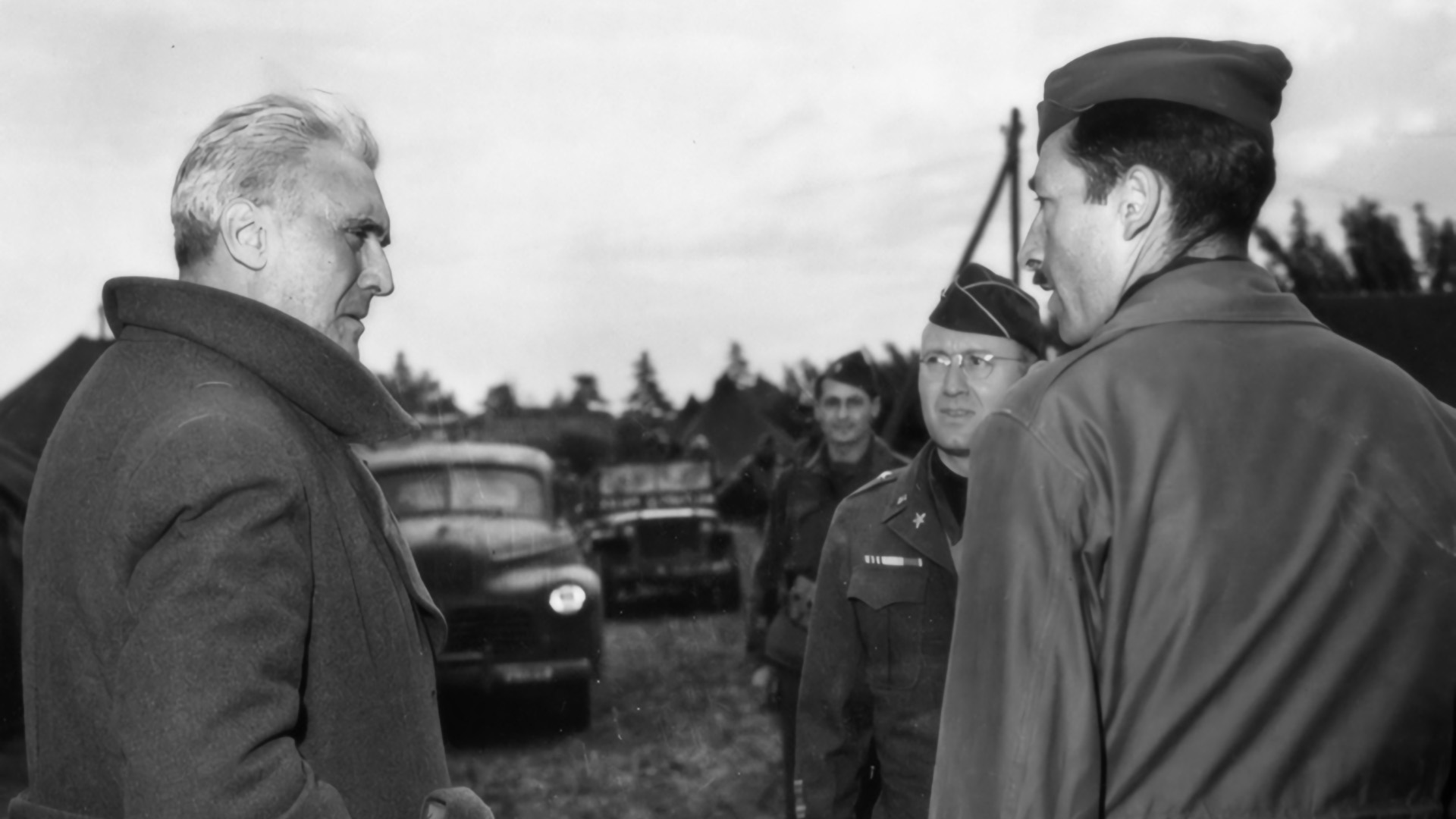
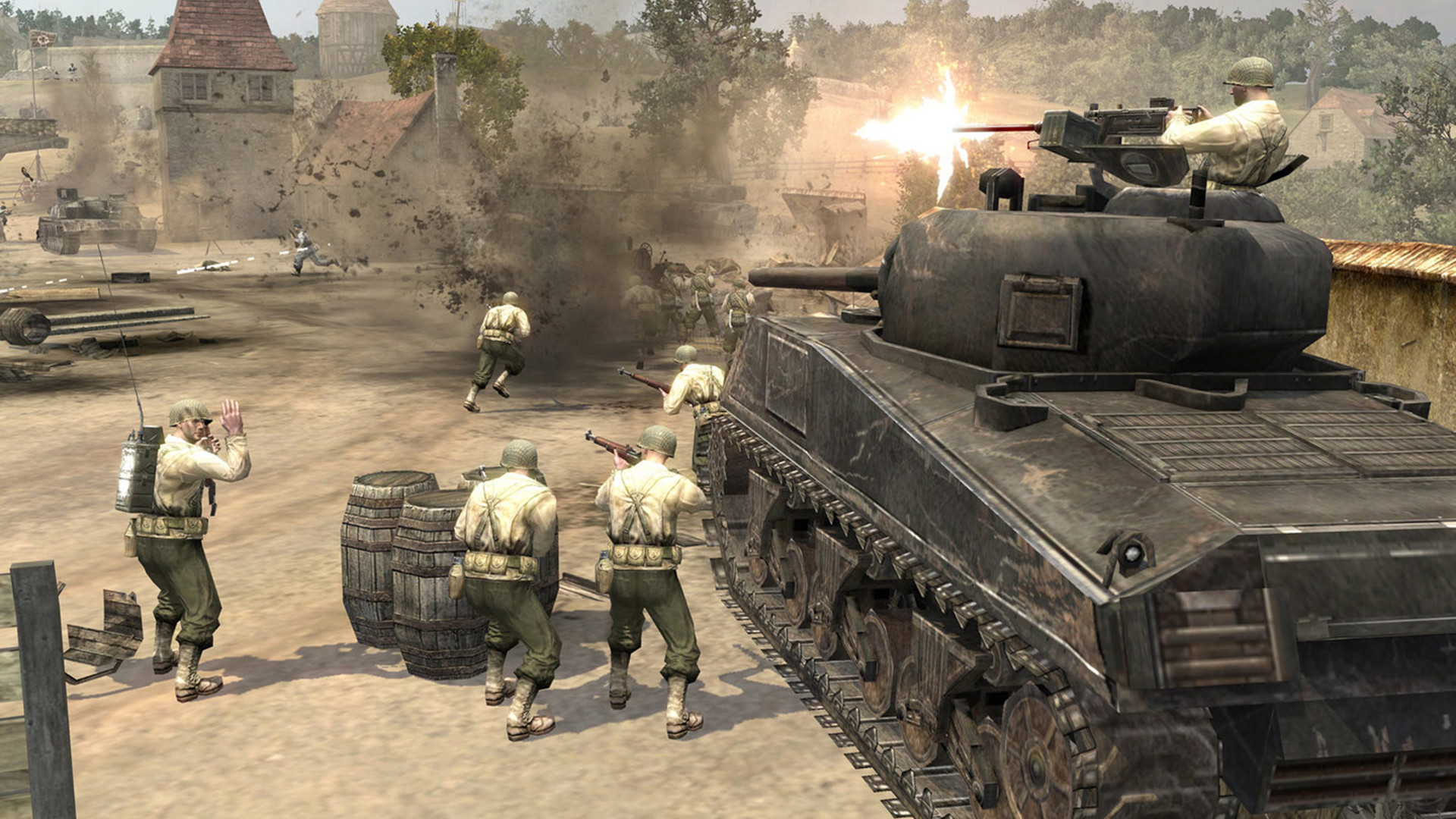
Join The Conversation
Comments
View All Comments